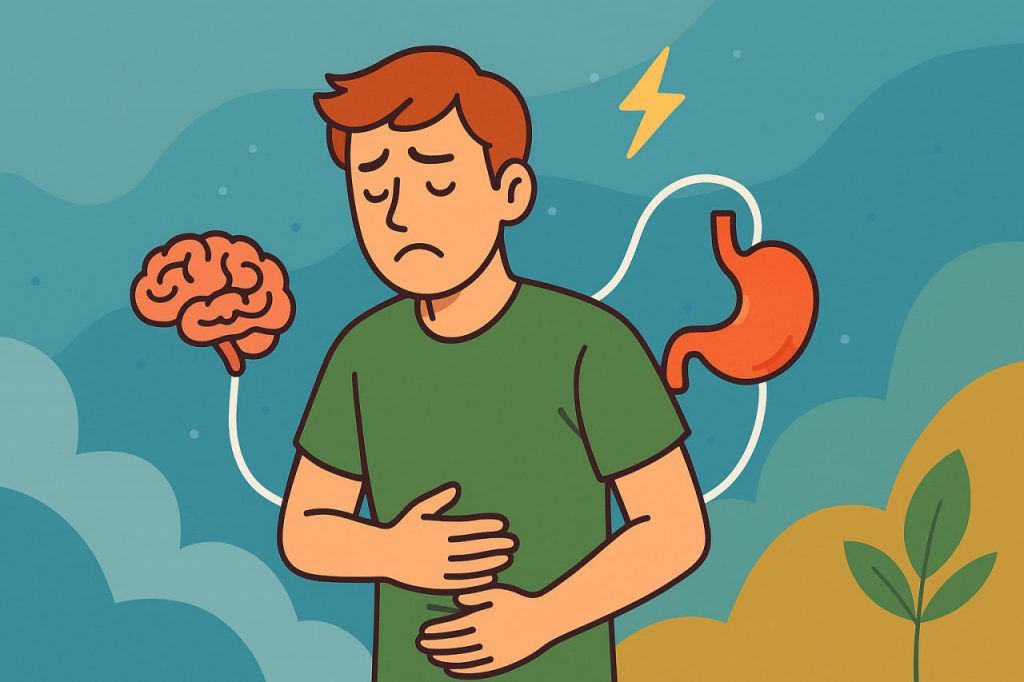Stress is a natural physiological response to challenges, but when it becomes chronic, it can significantly impact the digestive system. The brain and gut are closely connected through the gut-brain axis, meaning emotional tension can directly affect how the stomach and intestines work.
1. The Gut-Brain Connection
The gut has its own network of nerves called the enteric nervous system, often referred to as the “second brain.” Stress activates the sympathetic nervous system, which redirects blood flow away from the digestive organs, slowing or disrupting digestion.
2. Immediate Effects of Stress on Digestion
- Decreased production of digestive enzymes
- Slower stomach emptying, leading to bloating and discomfort
- Increased acid secretion, which can cause heartburn
- Changes in intestinal movement, causing constipation or diarrhea
3. Chronic Stress and Long-Term Consequences
When stress is constant, it can:
- Contribute to irritable bowel syndrome (IBS)
- Worsen gastritis or peptic ulcers
- Lead to nutrient absorption problems
- Affect the balance of gut microbiota, which supports immune health
4. Signs Your Digestion is Affected by Stress
- Frequent stomach pain or cramps
- Unexplained changes in bowel habits
- Loss of appetite or excessive hunger
- Persistent bloating or gas
5. How to Reduce Stress-Related Digestive Problems
- Practice mindful eating — eat slowly and avoid distractions
- Use relaxation techniques such as deep breathing or meditation
- Maintain regular physical activity to improve gut motility
- Get enough sleep to help regulate stress hormones
- Consult a doctor if symptoms persist, as they may indicate an underlying condition
Conclusion
Stress doesn’t just affect the mind — it can significantly disrupt digestion. By managing stress and adopting healthy eating habits, you can protect your gut health and improve overall well-being.
Glossary
- Gut-brain axis – The two-way communication system between the gut and the brain.
- Enteric nervous system – A network of nerves controlling digestive function.
- Digestive enzymes – Proteins that help break down food.
- Microbiota – Microorganisms living in the digestive tract.
- Irritable bowel syndrome (IBS) – A common digestive disorder linked to stress.


